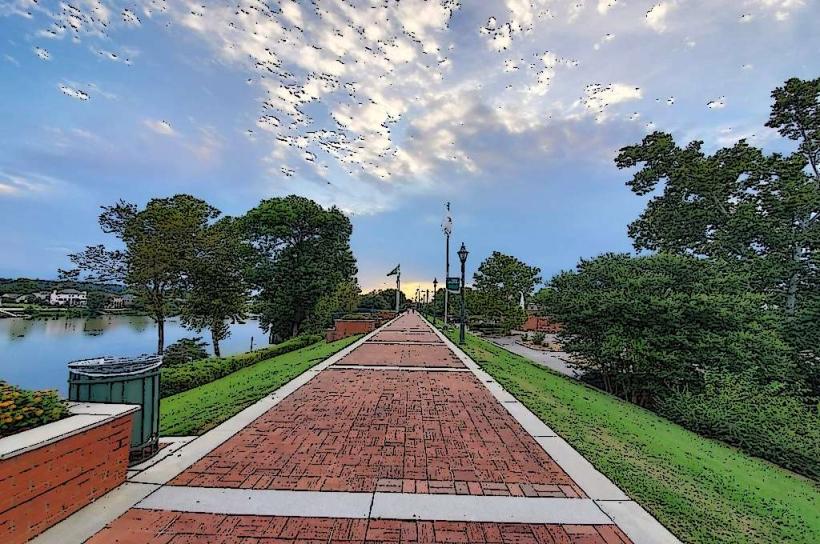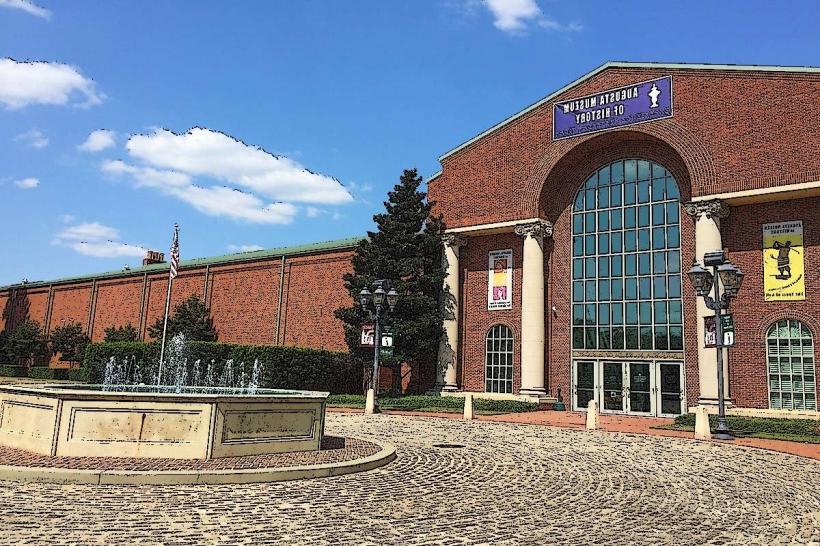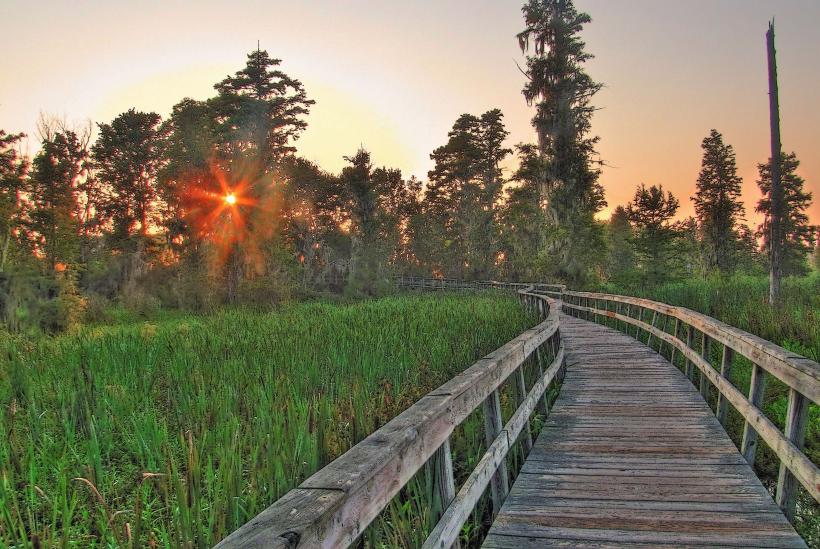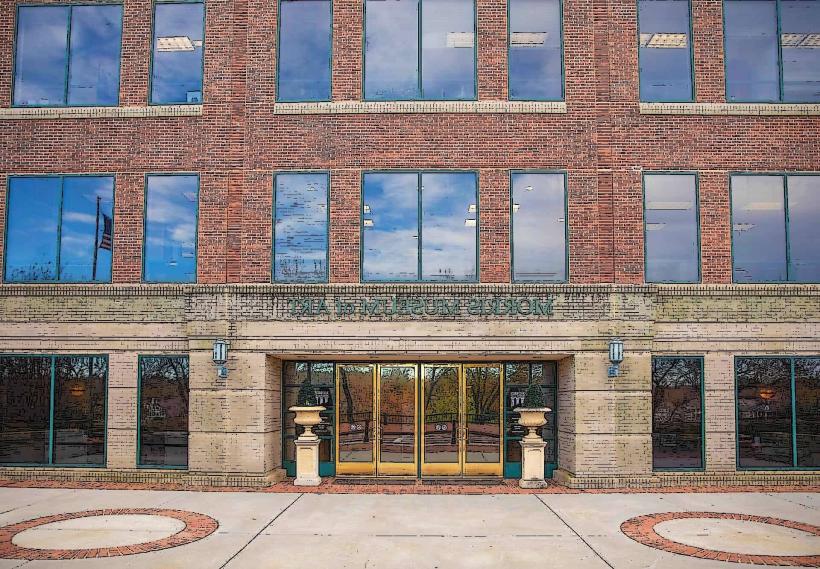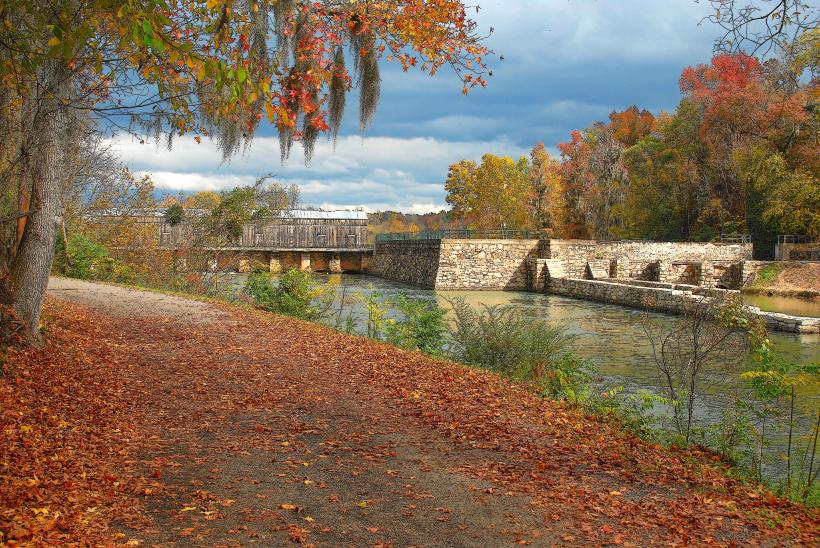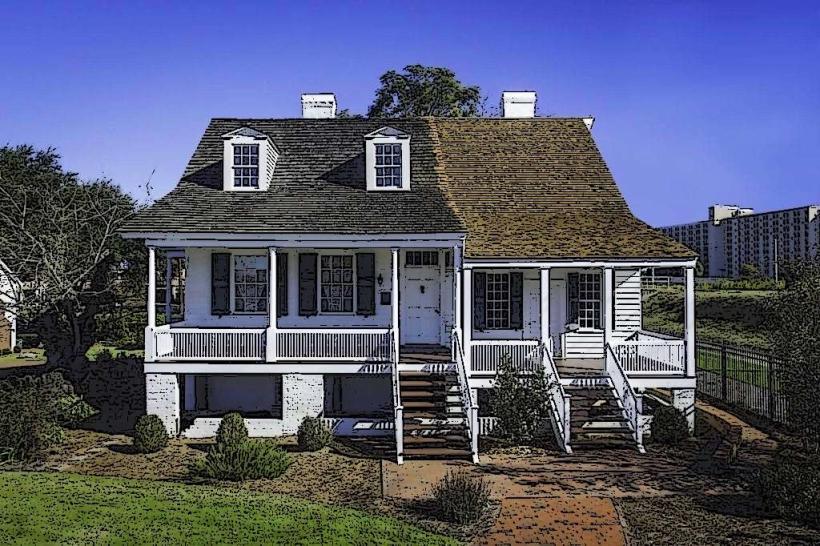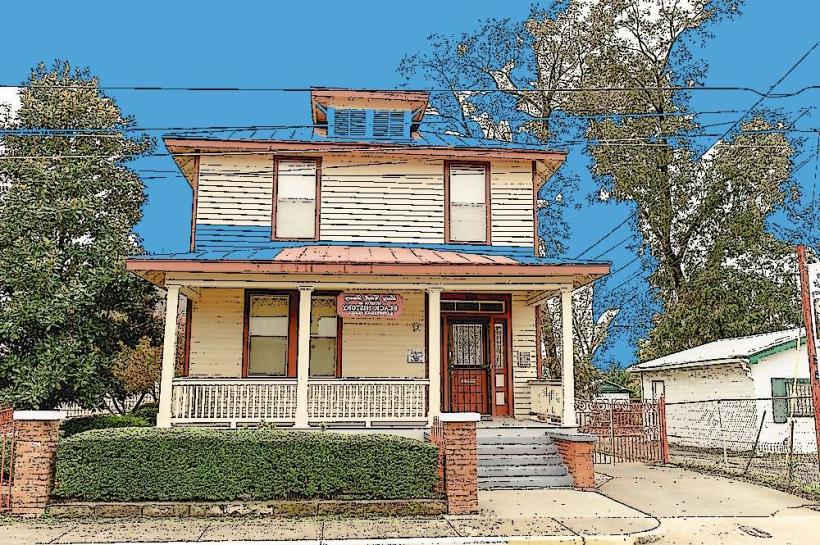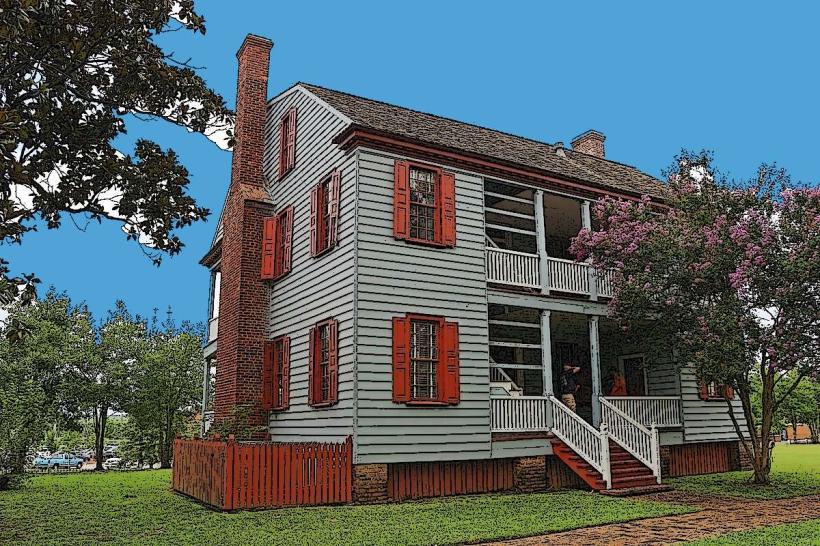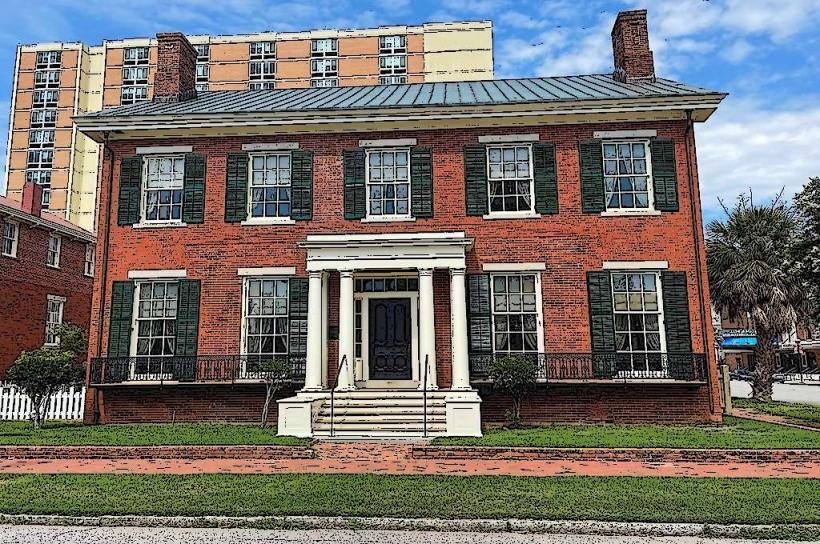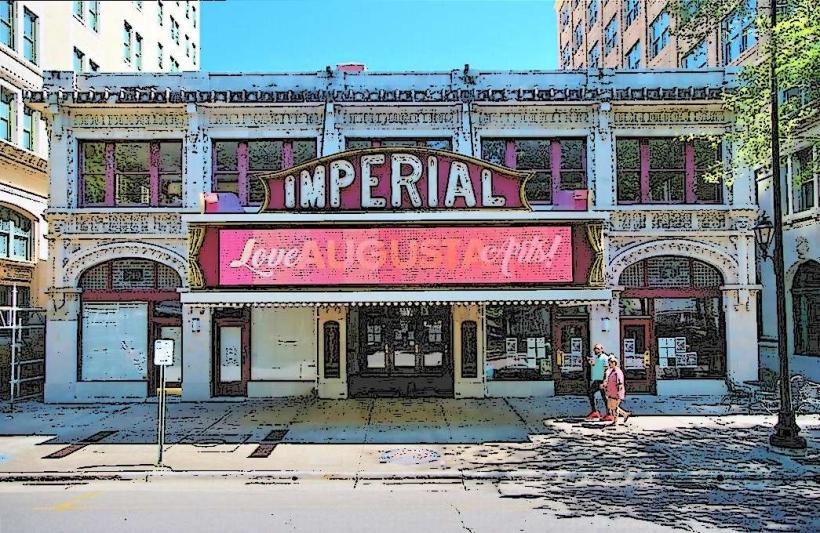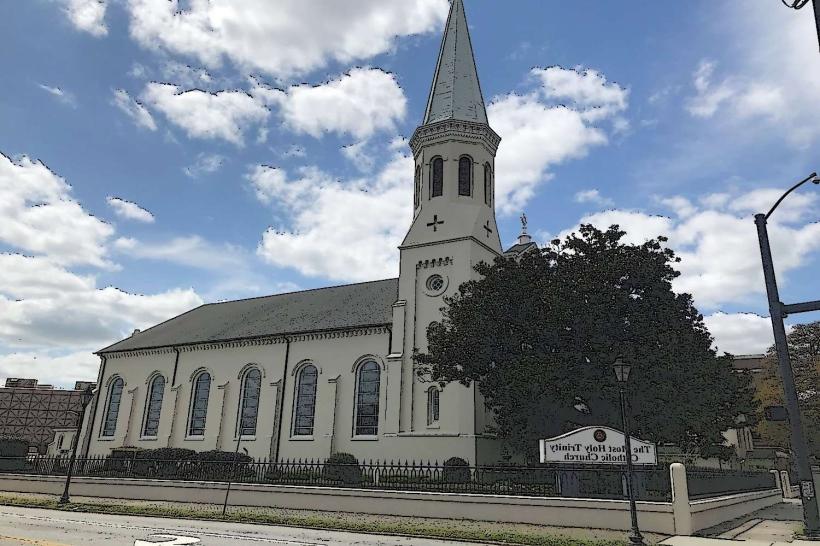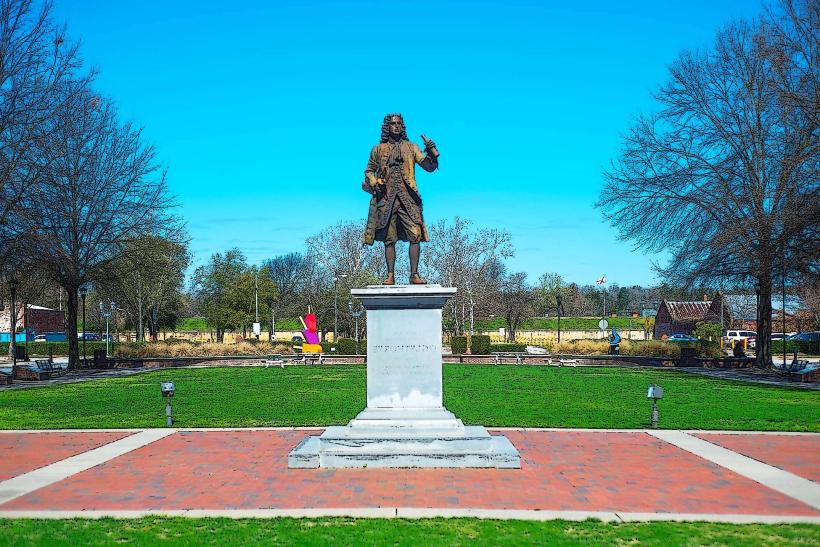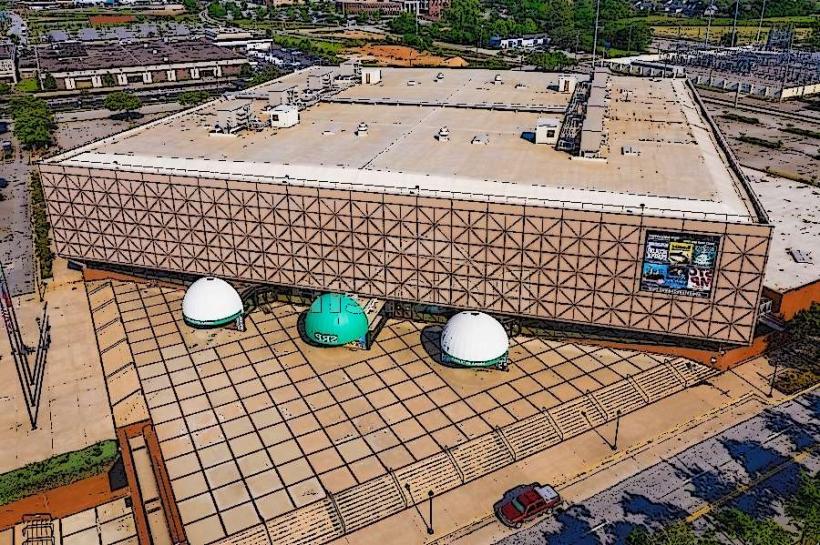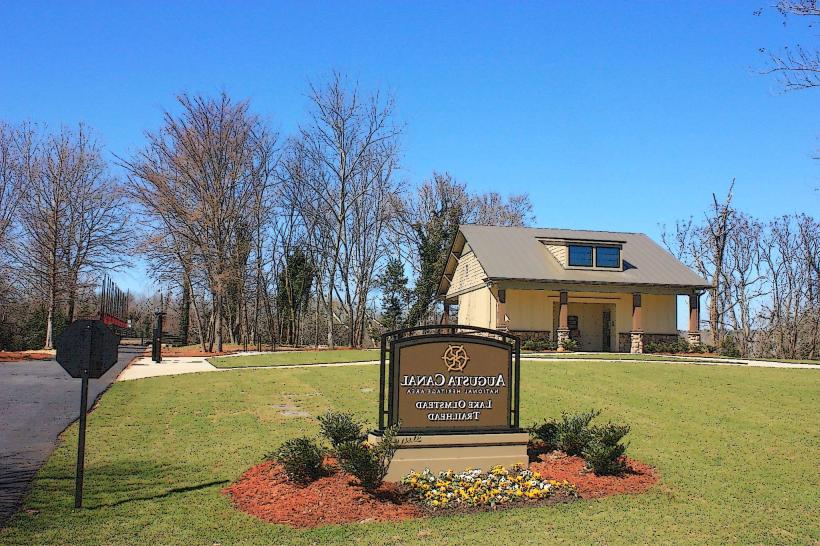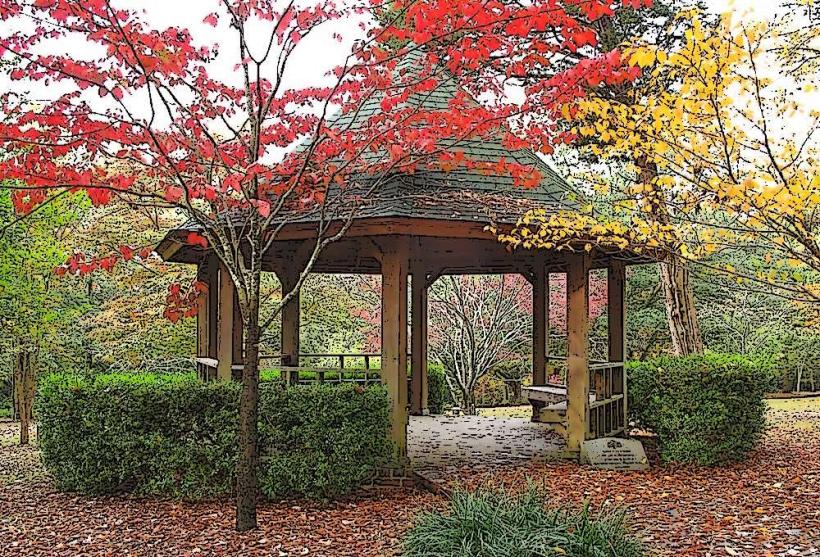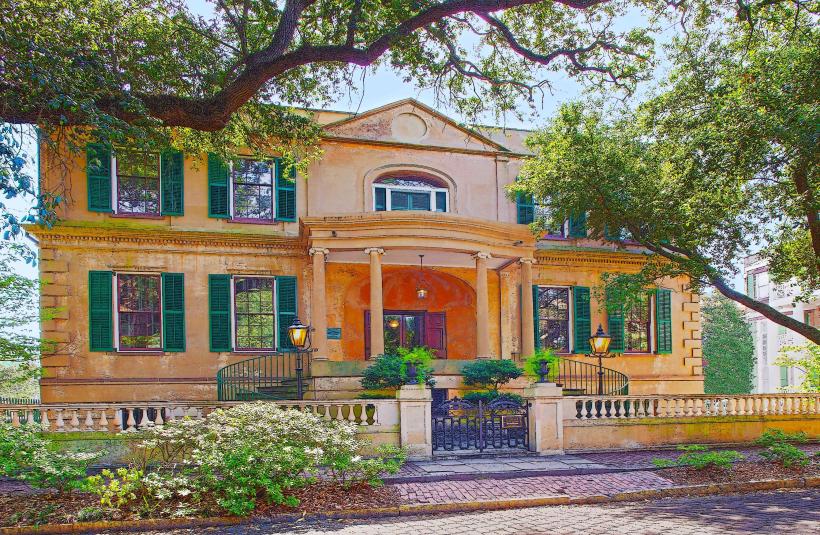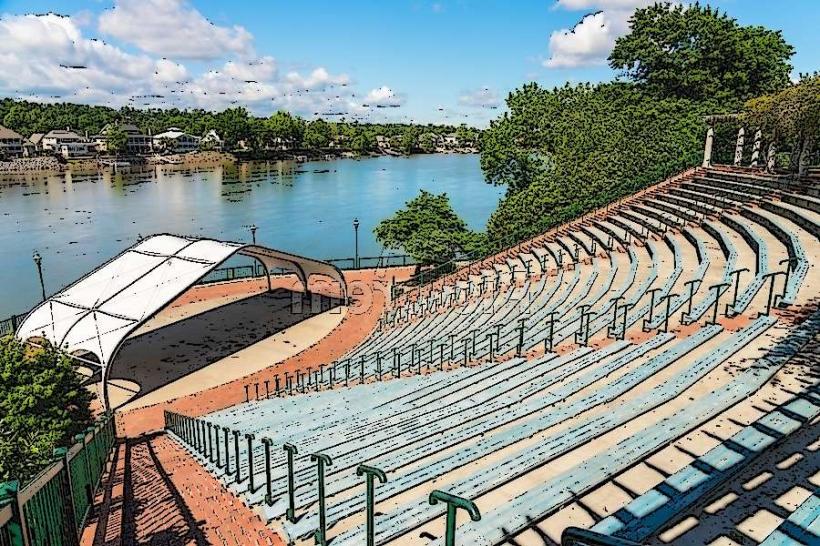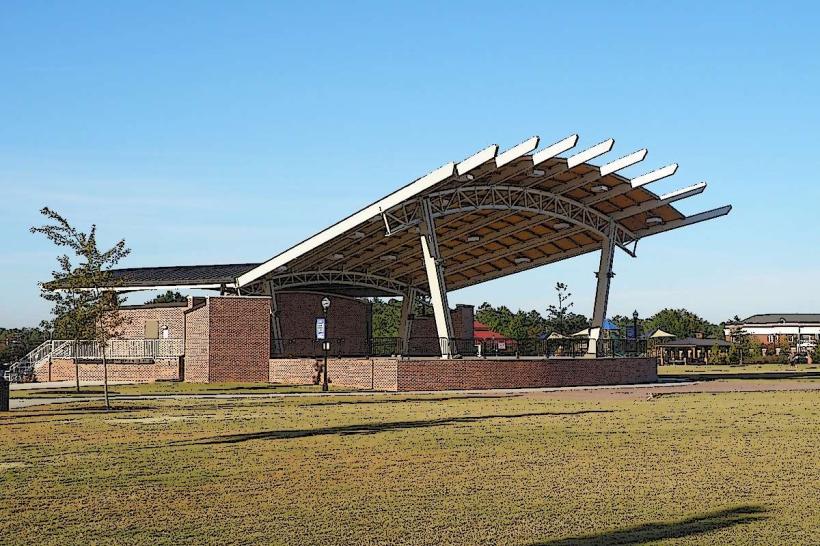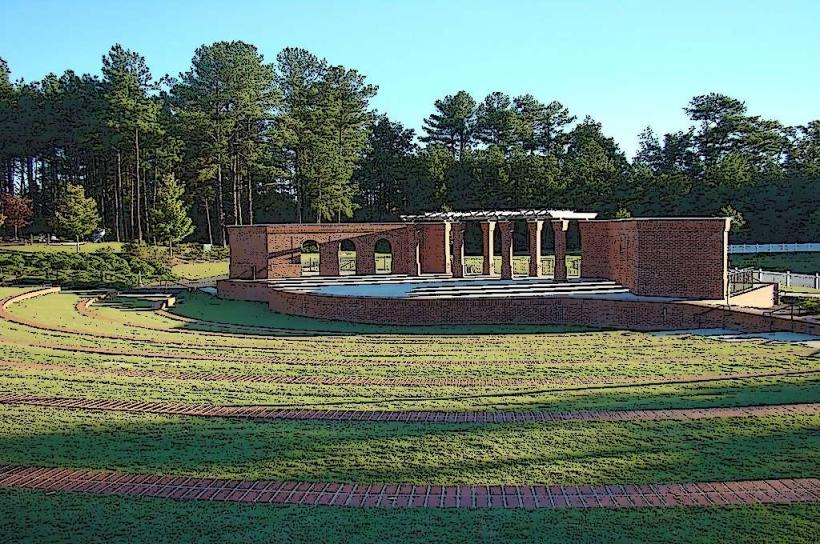Information
Landmark: Sacred Heart Cultural CenterCity: Augusta
Country: USA Georgia
Continent: North America
Sacred Heart Cultural Center, Augusta, USA Georgia, North America
The Sacred Heart Cultural Center is a historic building located in Augusta, Georgia, USA.
It was originally constructed as the Sacred Heart Catholic Church.
Visual Characteristics
The structure is a Romanesque Revival style building constructed primarily of red brick with limestone accents. It features a prominent central tower with a copper-clad spire, reaching approximately 150 feet in height. The facade includes arched windows and doorways, detailed stonework, and a large rose window above the main entrance.
Location & Access Logistics
The Sacred Heart Cultural Center is situated at 1301 Greene Street in Augusta, Georgia. It is approximately 1.5 miles east of the Augusta city center. On-site parking is available in a dedicated lot adjacent to the building. Public transport options include the Augusta Public Transit bus lines, with routes that stop within a 0.25-mile radius of the center.
Historical & Ecological Origin
Construction of the Sacred Heart Catholic Church began in 1905 and was completed in 1909. The architect was Henry J. Slattery. The building was designed to serve as the primary place of worship for the Catholic diocese in Augusta. It was later deconsecrated and repurposed as a cultural center.
Key Highlights & Activities
Visitors can explore the main sanctuary, which features ornate stained-glass windows and detailed plasterwork. The building hosts various cultural events, including art exhibitions, musical performances, and community gatherings. Guided tours of the architectural features are available by appointment.
Infrastructure & Amenities
Restrooms are available on the ground floor. Limited shaded areas are present in the surrounding grounds. Cell phone signal (4G/5G) is generally consistent within the building and on the property. Food vendors are not typically present on-site, but several restaurants are located within a 0.5-mile radius.
Best Time to Visit
For interior photography, the late morning (10:00 AM - 12:00 PM) offers good natural light through the stained-glass windows. The center is open year-round, with specific event schedules varying. No tide considerations apply.
Facts & Legends
A local anecdote suggests that during its construction, a rare type of fossilized shell was discovered within the limestone quarried for the building, though this has not been officially verified.
Nearby Landmarks
- Augusta Riverwalk (0.8km West)
- Augusta Museum of History (1.2km West)
- Morris Museum of Art (1.3km West)
- Old Medical College of Georgia (1.5km West)
- Evelyn & Walter Haas, Jr. Pavilion (1.8km Southwest)

